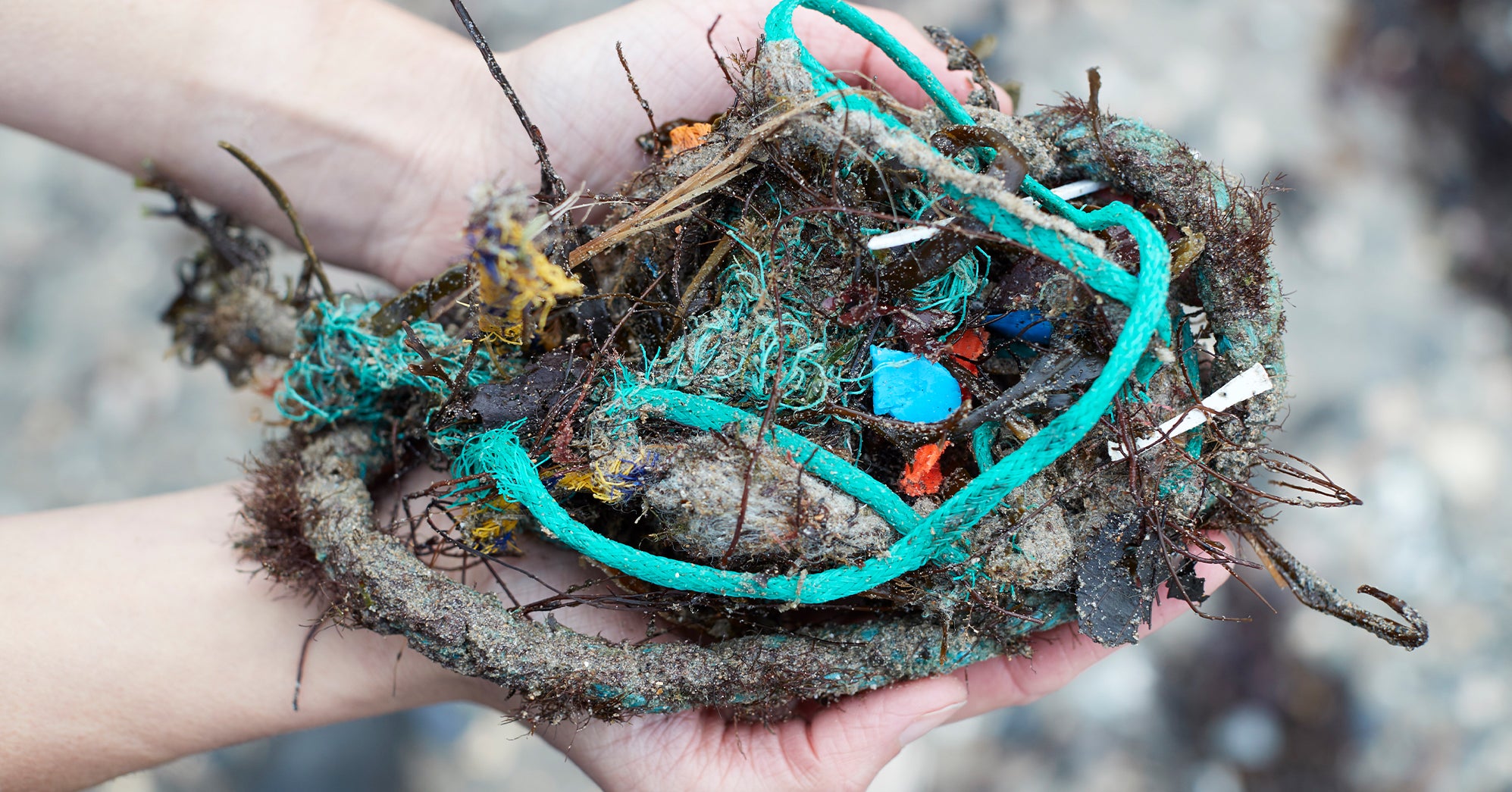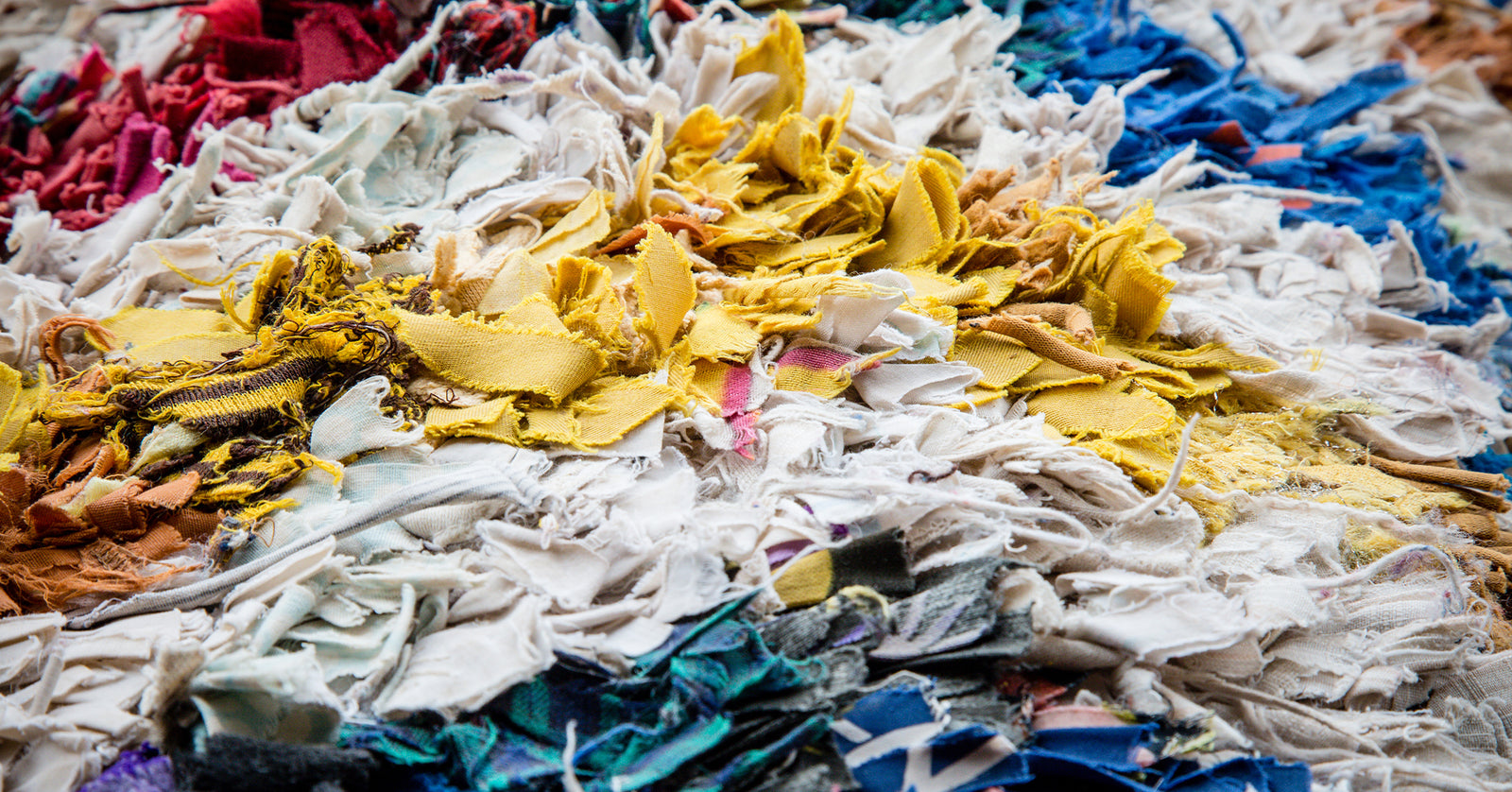It's become normal to be able to buy clothes cheaply, instantly, casually. Our insatiable thirst for the ‘next new thing’ means consumer demand shows little signs of stopping anytime soon. But at what cost?
Every year, over £140 million worth of clothing ends up in landfill. Globally, the fashion industry has one of the biggest impacts on our environment- sitting just behind housing, transport and food.*
Fast fashion refers to producing clothing as quickly and as cheaply as possible. As making these items costs so little and is priced low, we’re encouraged to buy almost without thinking. To meet demand, retailers end up overproducing.
This creates a no-win situation, with consumers disposing of unwanted clothing that isn’t fit for purpose and retailers throwing away excess stock. All of this waste is not only bad for consumers and retailers, but also causes significant harm to our planet.

Not designed to last
Shrinking, warping, fading, fraying - just a few of the issues you’re likely to come across with fast fashion.
Products produced so cheaply are not made to see you into your twilight years. They’re made to fall apart. Cheaper clothing will lose elasticity and support, zips and fastenings are likely to break, while shrinking and warping will mean your kit ends up bunching, pulling or rubbing in all the wrong places.
Cost per wear
While cheaper items will undoubtedly cost you less upfront, you’ll end up having to replace them - especially if you’re a regular runner. Looking at the cost per wear will ultimately give you better value. For example, buying a pair of running shorts for £20 that only lasts 6 months will end up costing you more than spending £40 on a pair that will last for years.
Environmental impact
Producing endless clothing is bad for our planet. As well as using precious resources, it causes significant carbon emissions, dries up water sources and leads to harmful chemicals and waste entering our water systems.
Unethical labour
Fast fashion has long come under fire for unethical labour practices, including long working hours, poor conditions and minimal pay. Many of these workers have little access to support at work, leaving them vulnerable to exploitation.
By purchasing from responsible companies, you’re helping to support sustainable production practices and the move towards ‘slow’ fashion.
Rethinking how we see clothes
We have become so used to clothes being available at knockdown prices, that we’ve almost forgotten the time and care that goes into creating a high-quality product. This means we treat clothes as disposable, rather than as things that should be cared for.
It’s time to retrain how we think about our clothes - including mending things when they are broken, storing them correctly and paying attention to the care labels (they’re there for a reason!). Buying better clothes which aren’t as influenced by seasonal trends will mean you can enjoy your kit all year round for years to come.
At Tribe Sports, we’re leading the way as the UK’s first 360 sustainable running brand with a full range of sustainable and recycled running apparel.
We’re resolutely rejecting fast fashion - are you?

*Source: Wrap.org.uk






DAVID REID
April 24, 2020
When the ‘workers’ are paid by piece work it can be a frantic affair with short cuts being taken and a lack of pride in what they produce.
Quality has its own reward that can perform to its full and lasting extent !